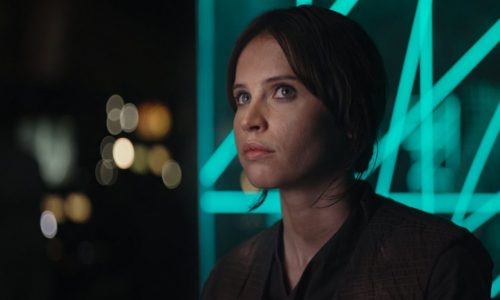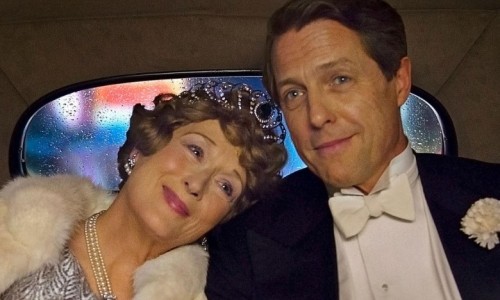A record £1.35bn of foreign money was spent on film production in the UK in 2016, up 18% on the previous year. This helped boost the total film production spending in the UK to £1.6bn, which is also a record figure. Less than a quarter of the 200 films shot in the UK last year were foreign funded, but they accounted for 85% of the spend.

New statistics released by the BFI highlight the success of film production in the country, with the four top-grossing films at the UK box office, Rogue One: A Star Wars Story (£64.3m), Fantastic Beasts and Where to Find Them (£54.3m) and Bridget Jones’s Baby (£48.2m) all having been shot here. It’s the second year in a row that a film from the Star Wars stable has topped the UK box office chart, although Rogue One’s total is far short of the £114m taken by A Force Awakens.
The highest grossing British independent film, Absolutely Fabulous, earned £16m at the UK box office. Eddie the Eagle and Dad’s Army each took £8.7m, the Oscar winning The Danish Girl made £7.5m, with Brotherhood, David Brent: Life on the Road, Florence Foster Jenkins and I, Daniel Blake, all taking between £3m and £4m. Amma Asante’s highly acclaimed London Film Festival opener A United Kingdom took £2.3m. But these were largely funded and shot in 2015, with spending on British productions last year – at £206m – being 8% down on the previous year. Although with independent British films being harder to monitor, the BFI says it sometimes take a little longer to get a full picture of this sector.
There was also a fall in the total spend on the twenty-three UK co-productions.
Ticket sales – both in terms of numbers and total receipts – remained strong, although they were down slightly on 2015. 168 million cinema tickets were sold in the UK – 2% less than the previous year, although just above the ten-year average. And the box office total was just under £1.23bn, second only to the 2015’s figure of £1.24bn.
The BFI also gathers similar figures relating to what it calls “high-end” TV productions. The total spend in the country on 84 of these shows last year was £726m, down more than 18% from 2015’s figure of £888m, which, when taking account of record inward investment of £478m, reflects a big fall in British investment in homegrown TV.
Taking into account both the feature film and TV figures, with record foreign investment and big falls in the spend on UK productions, it seems that the international community has more confidence in British talent and facilities than local producers and broadcasters. Most worrying is that this highlights a growing reliance on foreign money to keep the British film and TV industry afloat.
But rather than seeing the statistics as a dependency on foreign producers to prop up British facilities and talent, the minister who oversees the UK film industry, Matt Hancock, said the record-breaking production statistics demonstrated that the UK’s world-leading film sector continued to thrive and that Britain remained open for business. “With inward investment levels for film and television at new highs, we will continue to build on this tremendous success, forging a global Britain that remains the centre for attracting and developing the world’s best creative talent.”
And the BFI itself gave an upbeat response, with its chief executive, Amanda Nevill, repeating Mr Hancock’s assertion. She said the statistics showed “UK film is open for business and our position as a global leader for film and TV production is stronger than ever.” But she acknowledged that “there is much to be done to ensure British independent films are able to better capitalise on opportunities in this economically and creatively buoyant environment.”
Of course, on both the big screen and the small screen, there’s a delay between production and exhibition, which makes it harder to draw a clear correlation between production spend and the ultimate success of a film or TV show. But this month’s Golden Globes success of British TV shows produced in 2015 and broadcast in 2016 could persuade broadcasters back home to increase their investment this year, to try to keep up the momentum.

But things are even less clear-cut with feature films, where success at the box office has not been matched by awards recognition; while the most successful films at the UK box office were made here, they were largely funded from the US and failed to wow the Academy; the only British film to be recognised in Hollywood was Florence Foster Jenkins, for Meryl Streep, while the only British actors to receive Oscar nominations – Andrew Garfield, Naomie Harris and Dev Patel – did so for American or US-co-productions.
With the lower value of the pound against the dollar making the UK talent, facilities and locations increasingly attractive to Hollywood money, the question is whether Britain’s film industry will become increasingly reliant on films such as Star Wars Episode VIII: The Last Jedi, Christopher Nolan’s Dunkirk and DC’s comic-book compendium Justice League – which brought the most money into the country last year – or whether a growing confidence from homegrown producers and broadcasters might begin to redress the balance – either to try to repeat the Golden Globes TV success or to get more recognition for truly British films globally.
